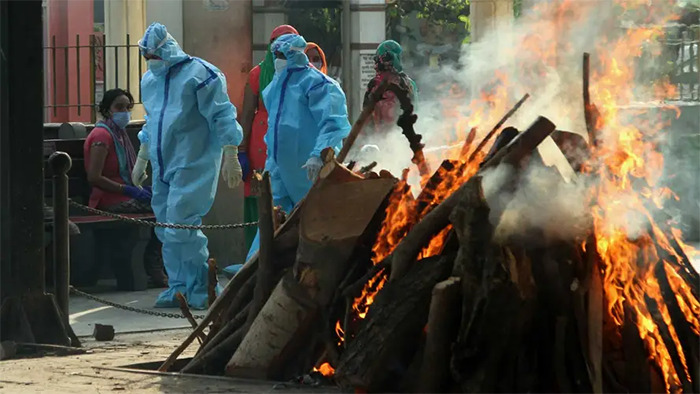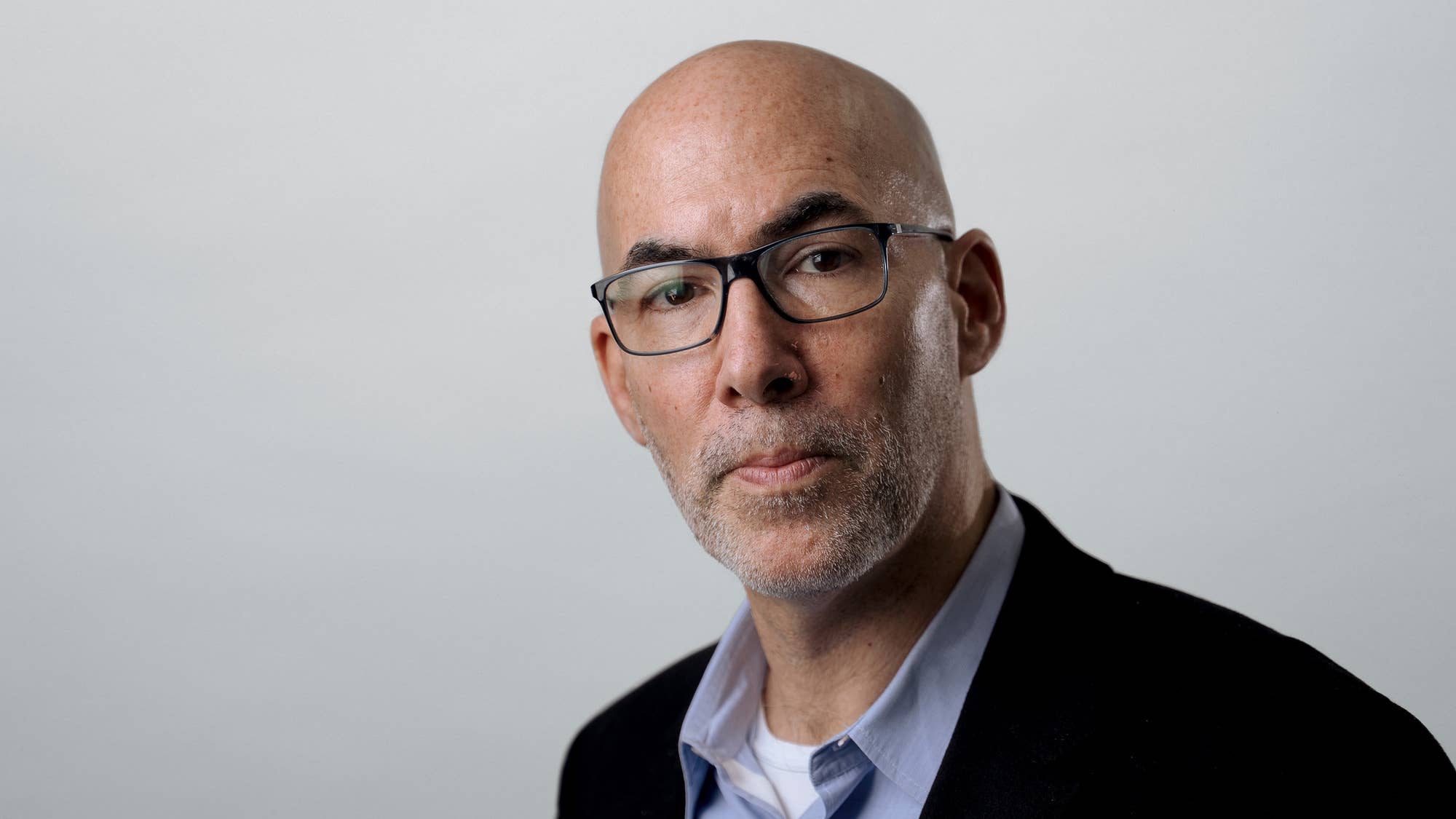
Ian Bremmer Talks ‘Post-America Hedge’
Ian Bremmer, Founder & President at Eurasia Group, speaks on the state of American hegemony around the world and how allies are ‘hedging’ themselves in…
Thought Leader: Ian Bremmer

hatever you heard about India’s COVID-19 outbreak downplays the true horror that has gripped the country in recent months. As the smoke from mass cremations formed clouds of heartbreak overhead, the survivors below braced to become a statistic among the record number of coronavirus deaths. And the statistics, while gradually improving, hardly capture the full toll. A Salesforce colleague lost 10 loved ones to the virus, while an acquaintance’s family suffered 20 deaths.
Meanwhile, South Africa is being hit by a “devastating wave” as a highly-transmissible variant spreads rapidly across the continent. And India’s crisis hampered plans to send vaccines to Africa. Health experts warn that the death toll is also worse than what is being reported in other low- and middle-income regions such as South America, which has suffered roughly one-quarter of the world’s COVID-19 related deaths. Countries like Mongolia, Nepal, and Myanmar also face impending health and economic crises. As NY Times points out, “The pandemic is splitting into haves and have-nots.”
As world health officials urge governments to step in and help, I’m reminded of the critical role private-public sector partnerships have played in the resilience of many countries to date. The next logical step is clear: companies need to fill the void, step up and help in this global catastrophe.
As an American doctor of Indian descent, I was born in West Virginia, but spent my early childhood in India with family abroad. The situation in India is close to my heart, so I want to share a bit of my story to underline this global imperative. My family in New Delhi tells me what they see on the ground: as healthcare workers do their best, my sick uncle relies on home oxygen concentrators and video chats with doctors instead of seeking care in intensive care units, even though his condition warrants a hospital stay. His family is risking their own health because home is safer than India’s ICUs, which have become black holes where patients simply disappear — if they get a bed at all.
Imagine seeing 20 empty seats at your next holiday gathering. Imagine watching helplessly as one, five, or a dozen family members fight to breathe. Imagine knowing that the hospital offers no salvation, no hope.
India’s 1.3 billion people don’t have to imagine, nor do the millions of people who live in other countries but have deep familial and social ties “back home.” Throughout the world, people of Indian descent have been crying themselves to sleep. We’ve been glued to our phones as we try to secure medical support for sick family members and wait for updates via WhatsApp.
This is the hidden global toll of the COVID-19 tragedy: no matter where you live, it’s all but certain that one of your neighbors is suffering at the most primal, deep level. India isn’t the only country grieving; the entire globe is.
All this in a climate where the U.K. recently came under under scrutiny for reducing its foreign aid. And U.S. efforts, while improving on many accounts, are politicized. Companies are in the hot seat. They need to ramp up their support of India, Nepal, Africa, South America, and other low- and middle-income regions, or the suffering will magnify — and it will magnify around the world as new strains kick off a new wave of COVID worldwide. This is a humanitarian crisis of epic proportions.
Many businesses and organizations are taking steps to help. The COVAX initiative, a global alliance between the Coalition for Epidemic Preparedness Innovations (CEPI), Global Vaccine Alliance (GAVI), the World Health Organization (WHO), and other partners, is on track to deliver at least two billion vaccine doses to countries in need by the end of 2021. Salesforce provides the pro bono platform which enables the distribution of vaccines at this scale.
In partnership with HSBC, Salesforce also recently sent a plane with oxygen concentrators and pulse oximeters to New Delhi. We donated $1 million to relief efforts and our employees have raised nearly $1 million in employee-inspired giving. We also set up a 24/7 helpline for employees and family members who need information on hospital beds, testing, and more. Demonstrating the impact businesses have when they come together, Salesforce helped organize a global coalition of more than 40 companies that have mobilized $28 million to support organizations meeting pressing needs across India. Other large corporations like Google, IBM, and Deloitte are also supporting relief efforts.

Companies don’t have to be as large as Salesforce to support the cause. My colleague Jon Fee, the senior vice president of Salesforce.org, has been outspoken about corporate social responsibility. “Every company can help and every company should,” he said. “There is no such thing as a small donation — especially in a time of crisis.” He also believes giving sparks more giving. And he says that if corporations lean in at a global level, they will spark more giving at the local level.
Although these foreign nations might feel far away, a COVID surge can happen anywhere. We are all in this pandemic together. If the global community fails to learn from and address crises like this one, the next COVID-19 wave might happen in your country, state, or neighborhood.
On June 2, Salesforce kicked off a matching campaign for COVAX. We urge other companies to join us in supporting our global colleagues and communities who are currently impacted by the COVID-19 crisis.
Ian Bremmer Talks ‘Post-America Hedge’
Ian Bremmer, Founder & President at Eurasia Group, speaks on the state of American hegemony around the world and how allies are ‘hedging’ themselves in…
Thought Leader: Ian Bremmer
Peter Goodman Wins the Selden Ring Award for Investigative Reporting
In the award-winning investigation “The Poisonous Lead Trade,” Peter Goodman, working alongside Will Fitzgibbon of the nonprofit newsroom The Examination, exposed how the global automobile…
Thought Leader: Peter Goodman
Niall Ferguson: The Debt Threshold That Destroyed Every Empire
When interest payments on the national debt eclipse defense spending, history shows that great powers struggle to maintain military strength and global influence. As US…
Thought Leader: Niall Ferguson

